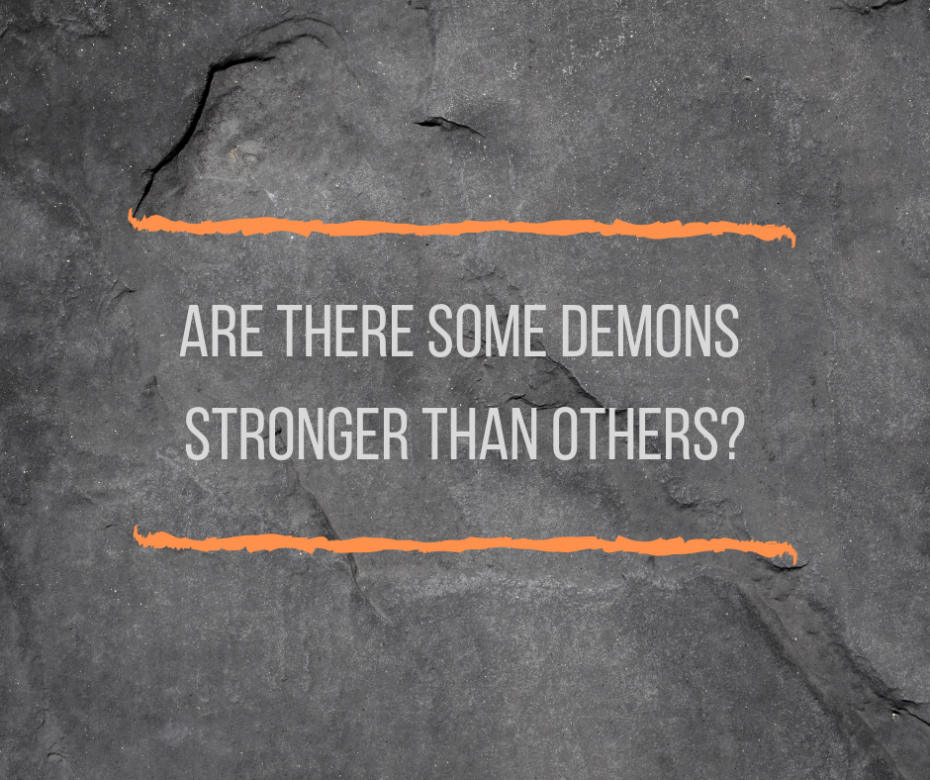I have always found Mark 9:29 to be a strange and hard to understand verse. A man has brought his son who has a demon that caused the young boy to be deaf and dumb and tried to destroy him. Jesus cast the demon out. The disciples had tried to cast the demon out before Jesus came upon the scene and were not able to do so. Before casting out the demon, Jesus rebukes the disciples (v. 19).
The disciples ask the Lord why they were not able to cast out the demon. Jesus tells them, “This kind can come out by nothing but prayer and fasting.” It must be pointed out that most translations (the critical text) do not include the word “fasting.” The Majority Text does include it. I believe it belongs in the text.
I had always thought and heard that what Jesus was saying was that this particular demon was especially difficult to cast out. Most demons could be cast out without prayer and fasting, but this one was in a different category. In other words, casting out a demon was dependent upon how strong (?) the demon was.
The reasons why this is a strange verse for me are many. It is hard to relate to since I have never cast out a demon of any kind. I don’t believe the Church is called to do so. Nowhere in the Bible are we told how to cast out a demon. Casting out demons is never mentioned in any of the Epistles. In addition, we are never told which demons are particularly strong or difficult to cast out. We are never told which demons require fasting and prayer to cast out. Even in the Bible when demons are cast out, there is never a call for fasting and prayer prior to doing so.
Perhaps more strange is this passage itself. The disciples could not cast out this demon, and Jesus rebukes them. But how could they have known to fast before the father brought this boy? They had no idea that they would be called upon to cast out the demon, so how could they have done the necessary prerequisites in order to do it? How long did they have to fast, even if they had known the boy was coming?
In Mark 6 we are told that the disciples had cast out many demons (Mark 6:13). But they couldn’t cast this one out. Is it simply that this was a different kind of demon? If that is the case, I must simply confess that we are dealing with a situation that I don’t understand. Perhaps the Lord spoke to the disciples about different kinds of demons and told them how to recognize the differences, and such instructions are not found in the Bible. I would also have to confess that I simply don’t know how the disciples could have known to fast and pray before this man brought his son to them.
Recently I wondered if there was another way to understand this strange (to me!) verse. Here is my feeble attempt to offer another way of seeing it. In Mark 6 the disciples were sent to the nation of Israel to proclaim the offer of the Kingdom. They could cast out demons to demonstrate that Jesus was the Messiah. When casting out demons they were simply doing what Jesus had commanded them to do (Mark 6:7). But in Mark 9 the disciples find themselves in a different situation.
The nation has rejected the offer and Jesus is going to be rejected by the nation and killed (Mark 8:31). Their ministry will change dramatically. The Lord began to instruct them about the need to follow Him in His suffering (8:34-38). This ministry will involve relying upon Him.
Could it be that the phrase “prayer and fasting” is an idiom expressing dependence upon God? These practices were examples of Jewish piety and such dependence. The disciples, when they tried to cast out the demon, were operating on the model of Mark 6. But things have changed. What before was done simply as a fulfillment of a command could now only be done in dependence upon the One they were following. “This kind” of ministry required a constant attitude of humility and a reliance upon Him. The disciples thought they were going to Jerusalem to reign. In Mark 8-10, Jesus is showing and teaching them that this is not the case.


